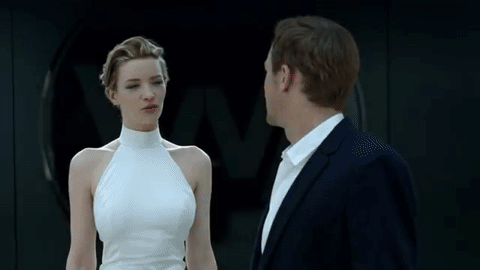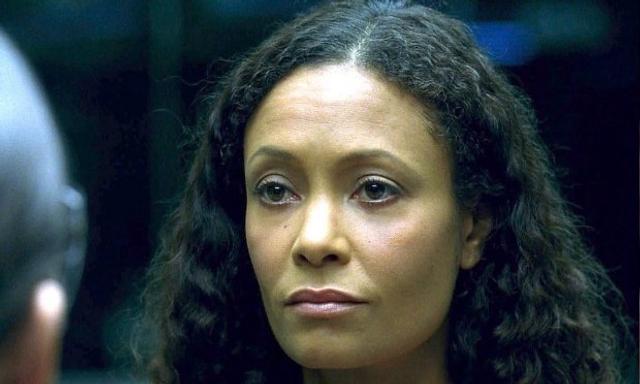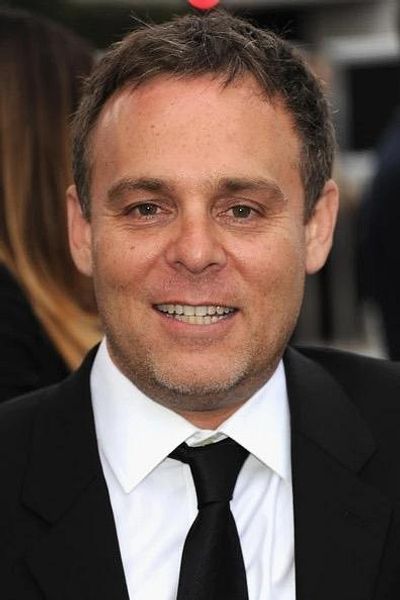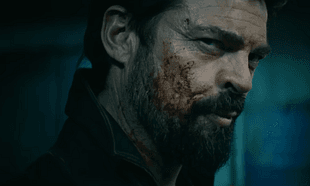One of the issues with the first episode of Westworld was that it was setting up the idea of a fake world, but not giving it enough context for it to make sense to the layman viewer.
For example, how did the hosts get so lifelike? What exactly was it that made them so lifelike? More to the point, how do the guests interact with them? If the first episode set up the host's world and and those who tend to them, then this episode focuses on the guest's world. Of course, Westworld's writers are too smart to show us the world outside. Instead, it opens on two guests - Jimmi Simpson, who audiences will know as Liam McPoyle from IASIP, and Ben Barnes, who audiences will know as Prince Caspian. The binary nature of humans is made clear when they're brought through non-orientation orientation; the host offers Jimmi Simpson's character two colour choices for his cowboy hat - white or black. That's how the humans perceive Westworld, either as a place where they can be a hero or a villain and with the two guests, it's clear one's a hero and one's a villain.
What's really making Westworld, however, is how humans interact with the hosts. Anyone's who played modern videogames, particularly RPGs, will relate to the scene at dinner where the old man interrupts them to try and get them to go on a sidequest to find buried treasure. The old man reams off his story and Barnes, without so much as a blink, knifes his hand to the table and calmly leaves the restaurant. How many times have you blown away a non-playing character in a game because they bugged you repeatedly or even just because you were bored? Those killing sprees you've gone on with Grand Theft Auto might seem harmless to you, but would you be so carefree if the non-playing characters looked and sounded like you? That very point is brought up by the host with Jimmi Simpson's character, that if you can't tell the difference, what's the point?

With the hosts, their stories are much more nuanced and more - whisper it - human than the humans themselves. Thandie Newton's character is fast becoming our favourite, primarily because there is something deeply unsettling about the idea that she can be punted from department to department and have her personality so clearly altered to suit people's tastes. It makes for a fascinating watch, especially that she's repeating the same line with completely different inflections and speech patterns - much like how an actor works out a scene. There's also parallels between Newton and her character, as she recently admitted that had it not been for Westworld, she would have retired from acting altogether. The episode deals with Newton's character becoming undesirable to guests and being presumably harvested for spare parts. Between this, however, there is a recurring dream scene where Newton's character is being hunted by the nameless Man In Black, played by Ed Harris.
Two episodes in, Ed Harris' character has been the most interesting, but his story has been the weakest. There is a definite smell of Lost coming from it all, what with the weird tattoo on the guy's scalp or the creepy kid who talks about a 'maze'. In a way, it plays into the whole idea of levels in a game and Westworld would absolutely have a much more intricate, deeply designed experience that's only for expert players. The way Harris' character talks about being "born" in Westworld is fascinating and adds all the more to the mystery of whether he's human or not. The best piece of evidence we can see so far that he's human is when the Other Hemsworth says that he "gets whatever he wants" and leaves it at that. It seemed like a particularly odd cutaway to make, but it's clear that there is meaning to it all - just like Harris' character believes.
By far, the most annoying character on the show has to be the writer Mr. Sizemore, played by Simon Quarterman. It isn't just the fact that he seems totally unconvincing as a hard-ass boss and has a grating personality, it's that he's regularly used as a punching bag by the actual writers. Is it perhaps some sort of comment on how television is considered a writer's medium? Or is it speaking to how computer games generally has poorly written, overwrought storylines like Mr. Sizemore's aborted efforts? Who knows. Anthony Hopkins' character and his mysterious plans for the park are touched upon briefly, all of which is leading us towards something probably... religious related? The final shot of a cross and a small church is an interesting one, and one of the main points that was mentioned in the various marketing materials and blurbs was about how Westworld was about "the future of sin." Is Hopkins' character rebelling against the horrors committed in Westworld, much like how we assume the hosts eventually will?
It's a strong episode and, when viewed against the first episode, it maintains the high production value and dusts away at the deeper stories to come. We're still hooked, basically.










































































